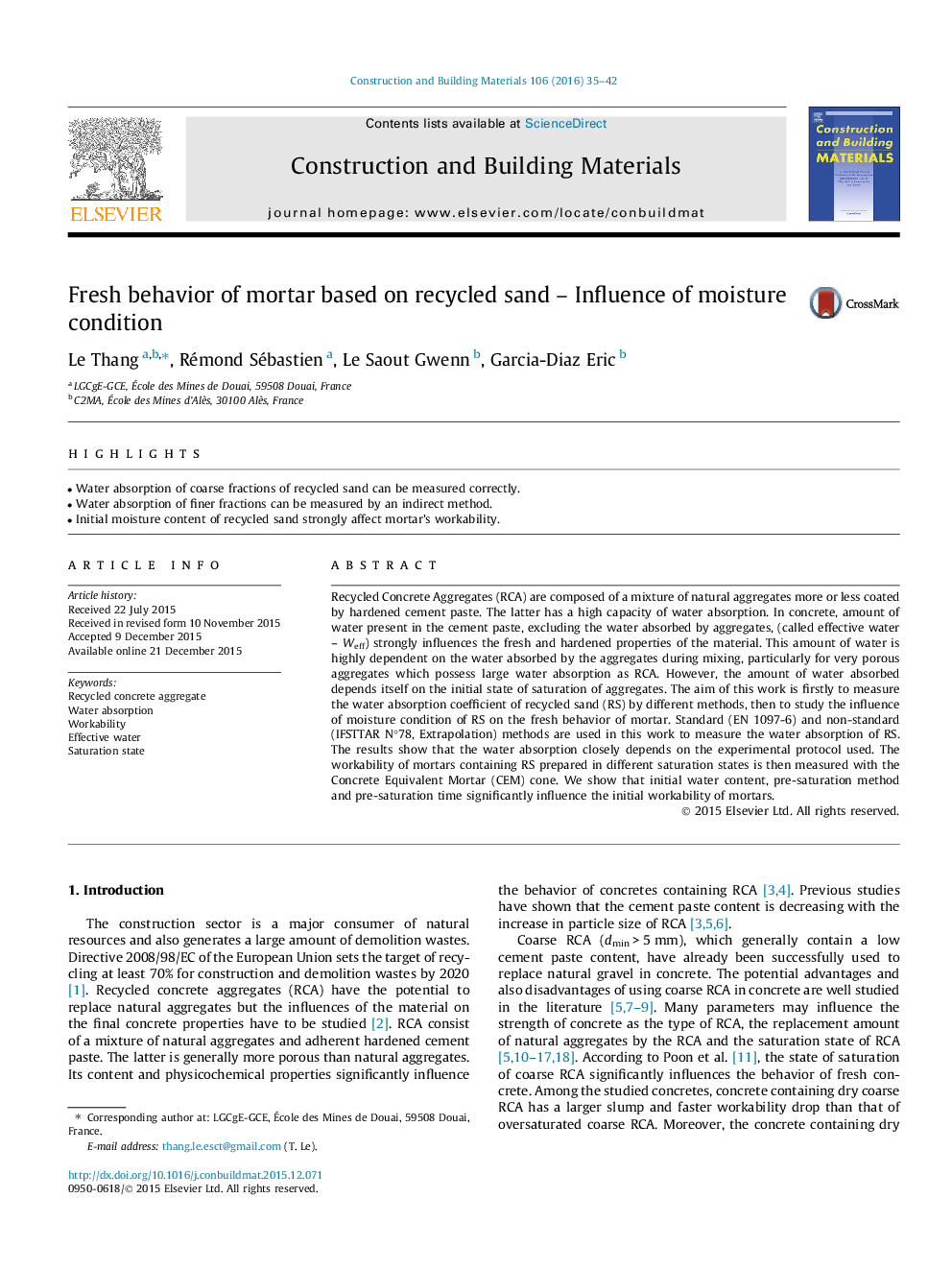| Article ID | Journal | Published Year | Pages | File Type |
|---|---|---|---|---|
| 256466 | Construction and Building Materials | 2016 | 8 Pages |
•Water absorption of coarse fractions of recycled sand can be measured correctly.•Water absorption of finer fractions can be measured by an indirect method.•Initial moisture content of recycled sand strongly affect mortar’s workability.
Recycled Concrete Aggregates (RCA) are composed of a mixture of natural aggregates more or less coated by hardened cement paste. The latter has a high capacity of water absorption. In concrete, amount of water present in the cement paste, excluding the water absorbed by aggregates, (called effective water – Weff) strongly influences the fresh and hardened properties of the material. This amount of water is highly dependent on the water absorbed by the aggregates during mixing, particularly for very porous aggregates which possess large water absorption as RCA. However, the amount of water absorbed depends itself on the initial state of saturation of aggregates. The aim of this work is firstly to measure the water absorption coefficient of recycled sand (RS) by different methods, then to study the influence of moisture condition of RS on the fresh behavior of mortar. Standard (EN 1097-6) and non-standard (IFSTTAR N°78, Extrapolation) methods are used in this work to measure the water absorption of RS. The results show that the water absorption closely depends on the experimental protocol used. The workability of mortars containing RS prepared in different saturation states is then measured with the Concrete Equivalent Mortar (CEM) cone. We show that initial water content, pre-saturation method and pre-saturation time significantly influence the initial workability of mortars.
